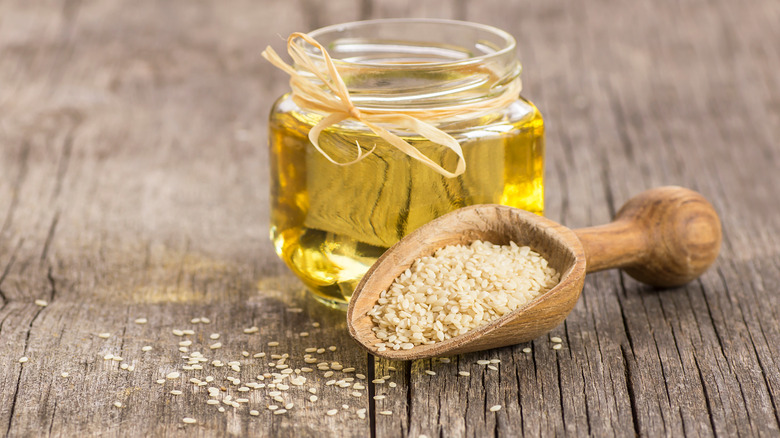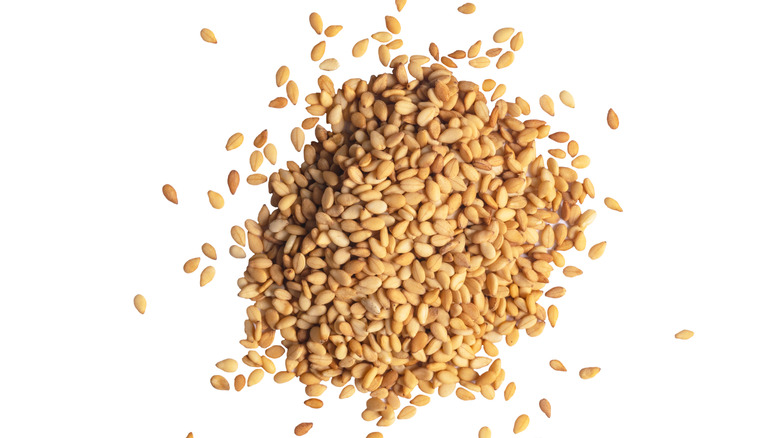The Real Health Benefits Of Sesame Seeds
Seeds are really having their moment. Flax, chia, and pumpkin — health enthusiasts are sprinkling these healthy additions in and on whatever recipes they wish to add some extra nutrition to. And we understand why. According to Healthline, these often overlooked toppings at the salad bar contain fiber, necessary vitamins and minerals, and healthy monounsaturated fats. In addition to a nutritionally dense profile, you might also want to consider adding seeds to your diet as they can help reduce blood sugar, cholesterol, and blood pressure.
Currently, the seed especially worthy of praise is the sesame seed. Medical News Today reports that the sesame seed comes from the sesame plant, Sesamum indicum, which is often grown in subtropical climates in Asia, Africa, and South America. Sesame seeds are an excellent source of protein, calcium, and vitamins B and E. They are also known for their anti-inflammatory benefits and have the potential to increase antioxidants in the body.
Sesame seeds have also been known to help with weight loss. The Healthy notes that because the seeds have loads of high fiber, plenty of protein, and lots of healthy fat, they can help you stay fuller for a longer period of time and in turn, keep up with a sustainable weight loss regime. They are also low in carbohydrates and aid in blood sugar control, which will leave you less likely to reach for the unhealthy simple carb options that promise to give quick energy.
These tiny health gems can also help with hair loss
In addition to aiding in weight loss, sesame seeds may help with hair concerns. Healthline shares that when applied topically, sesame oil can be used to treat hair conditions such as dandruff, dryness, and hair loss.
Now that you know how beneficial these tiny seeds can be, how can you add them to your diet? Cynthia Sass, R.D., a plant-based diet specialist based in Los Angeles tells The Healthy how versatile the sesame seed can be. "Sesame seeds can be consumed raw, toasted, or ground into things like tahini," she says. "Sesame oil extracted from the seeds has a higher smoke point, between 350 and 450 degrees depending on whether it's refined or unrefined, making it a good option for cooking." Sass goes on to recommend adding them to salads, soups, stir-fry's, and slaws.
We're starting to get why seeds are really having their moment. Especially the sesame seed! Consider gradually sprinkling more of these into your diet (only if you don't have a seed allergy) so you can start reaping the benefits.


